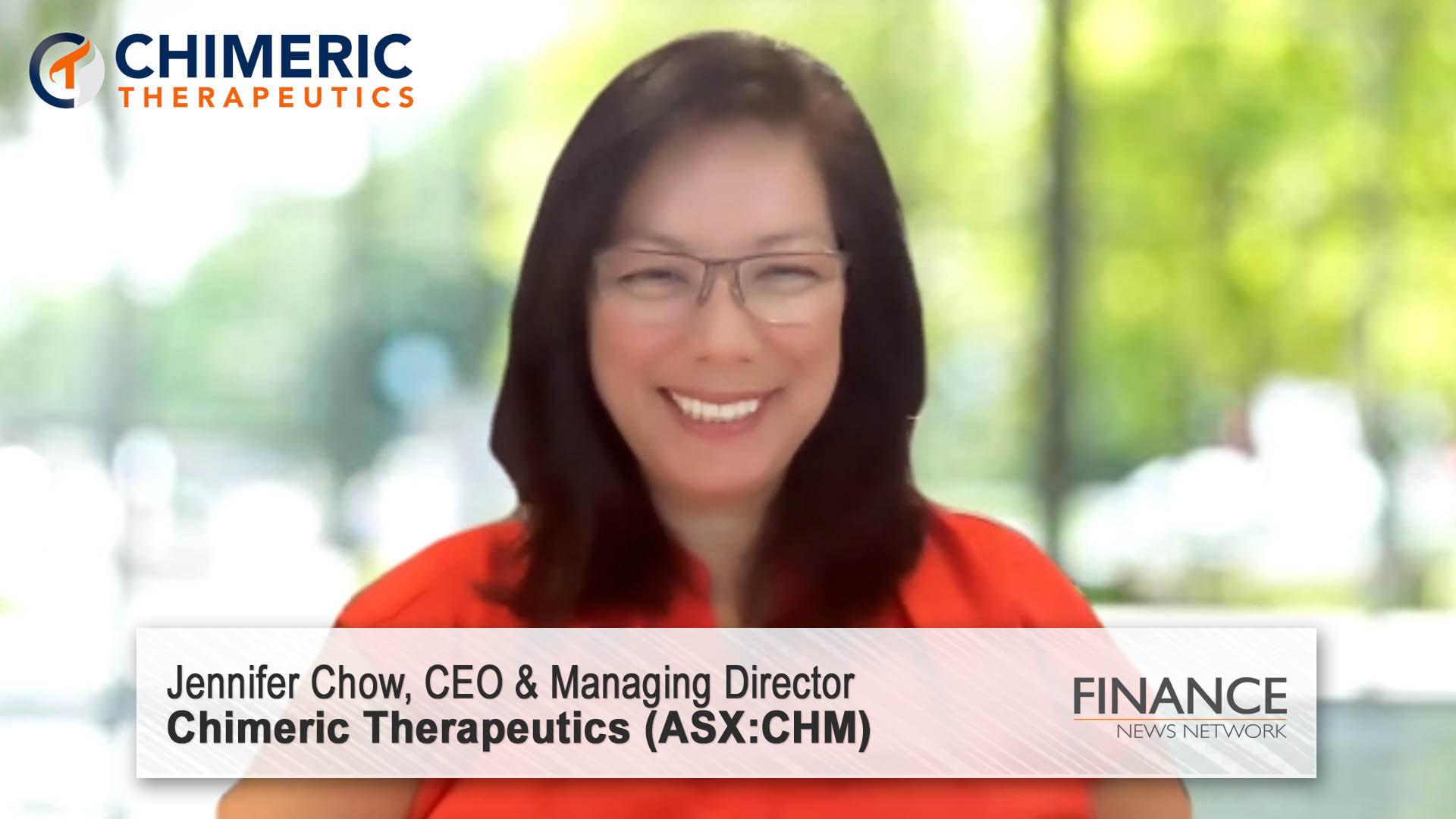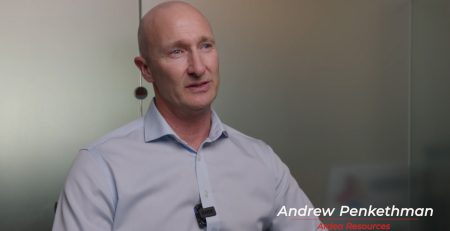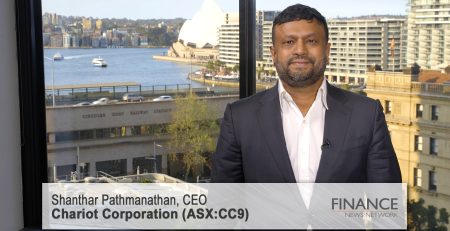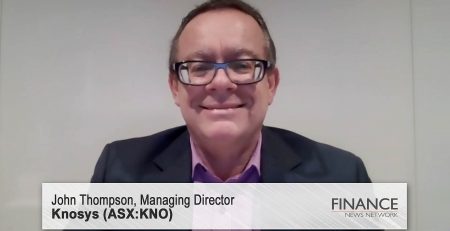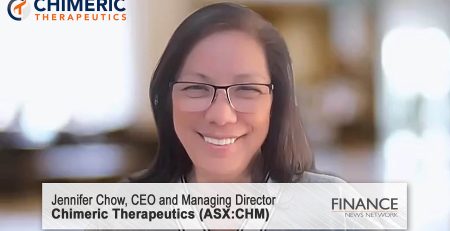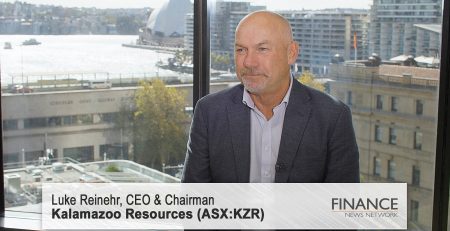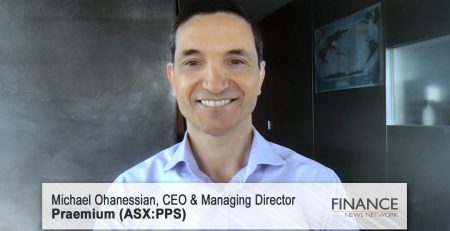Chimeric Therapeutics (ASX:CHM): Positive Initial Phase 1 Clinical Data
Chimeric Therapeutics Limited (ASX:CHM) CEO and Managing Director Jennifer Chow talks about the recent presentation of data from the CHM 1101 (Chlorotoxin CAR T) Phase 1 clinical trial in glioblastoma patients.
Melissa Darmawan: Hello. Melissa Darmawan for the Finance News Network. Joining me today from Chimeric Therapeutics (ASX:CHM) is CEO and Managing Director Jennifer Chow. Jennifer, nice to speak to you again, and congratulations on your appointment as Chief Executive.
Jennifer Chow: Hi, Melissa. It is wonderful to speak to you again as well. And thank you so much for the congratulations. It's been an exciting time.
Melissa Darmawan: Well, given that it's been a few months since your appointment, how has it been in the role?
Jennifer Chow: It's been crazy. We have been incredibly busy, Melissa, moving forward all of our programs and all of our developments. So, very exciting time for us. And we certainly have had a lot of activity going on, so it's been a wonderful couple of months. Thank you.
Melissa Darmawan: To put that all into context, for those tuning in for the first time, can you give us an overview of the company?
Jennifer Chow: Chimeric is a leader cell therapy development, as we have a clinical stage program. And, Melissa, that's with our founding asset, our chlorotoxin CAR T therapy, and in July we announced the acquisition of a second asset, our CDH17 CAR T. We also continue to look for additional assets to bring into our pipeline, and we're building out a team, Melissa, that I think is bar none the best in the industry that all have extensive experience in cell therapy. So, really the right people to move everything forward.
Melissa Darmawan: There was a lot of anticipation for the first clinical data for your chlorotoxin CAR T. Can you tell us about what data was released and why you're so encouraged by it?
Jennifer Chow: So, just to remind everybody, this is a Phase 1 clinical trial with chlorotoxin CAR T in recurrent or progressive glioblastoma. So, that is that rare type of brain cancer that unfortunately is very, very fatal for patients. The data that we saw was on the first dose level of patients that were treated with chlorotoxin CAR T in our trial. So, that's only four patients. So, very early days, Melissa. But certainly very important, what we saw. We felt it was very promising, as we saw some initial efficacy. We saw a 75 per cent disease control rate. We saw what looks like very promising safety, no dose limiting toxicities, and the therapy was generally well tolerated. And very importantly for cell therapy, we saw bioactivity of the CAR T-cells as well.
Melissa Darmawan: Let's talk with the efficacy. You mentioned a 75 per cent disease control rate with no real regional recurrence. What does that mean?
Jennifer Chow: So, disease control essentially talks about how many patients or what percentage of patients have control of their disease. So that means either the disease is stable or the disease is shrinking. So, with us in this particular trial, three out of the four patients that received the chlorotoxin CAR T cells were able to achieve disease control. So, very, very important and highly encouraging to us because this is the low, low dose of cells that they were receiving.
Melissa Darmawan: And talk us through what no regional recurrence means.
Jennifer Chow: So that was something that we saw this weekend as the data was actually presented at the scientific congress, and we saw it in one patient's MRIs. And so what we actually saw was that where the patient had received the chlorotoxin CAR T cell, so in the cavity, in the intratumoral cavity, where the actual administration of the cells was, there was no tumour recurrence. Where the patient actually had tumour progression was in the cavity where the cells were not administered. So this for us was really important, because right now the way our trial is set up, patients are only receiving cells through one intratumoral catheter that's placed in the brain. As we move forward to higher-dose levels, we're actually putting two catheters into a patient's brain, so they're receiving their cells intratumorally, but also interventricularly. So, being able to see that there was tumour recurrence only where the cells were not infused or administered really gives us a lot of optimism as we move to that dual root of administration now.
Melissa Darmawan: So, the early efficacy does look promising. Talk us through the safety profile.
Jennifer Chow: What we saw was no dose limiting toxicities, which is incredibly important. It allows us to continue to progress the trial. We also saw that the chlorotoxin CAR T cells were generally well tolerated by all of the patients. And, very importantly, there was no cytokine release syndrome seen, which is one of the adverse events that people really look for with CAR T therapies. We did note that there was one grade three cerebral oedema, but what we were able to learn from the clinician was that he really only felt it was possible that the chlorotoxin CAR T cells caused that cerebral oedema. Cerebral oedema is something that is very common with patients with glioblastoma. So, generally very promising safety profile that we're seeing emerge so far.
Melissa Darmawan: Thanks, Jennifer. What is bioactivity and why is it important?
Jennifer Chow: So, if you think about it, what we're actually doing is we're infusing live cells into your brain. And those cells, to be able to do their job, actually have to stay alive. They have to be able to go and find the cancer and kill it. What we were able to see in this early data was bioactivity, or persistence of the cells, throughout treatment — which really tells us that the cells are still alive, doing what they have to do.
Melissa Darmawan: Last question from me. What can we expect next?
Jennifer Chow: Lots more activity, Melissa. So, with what we've seen so far on the initial data for the chlorotoxin CAR T, we're highly encouraged. It's early days and very small patient numbers, but what we saw we felt was very promising. So, we're advancing that clinical trial into dose level two, where we're currently dosing patients, and then we'll be moving forward to dose level three and four. And as we do that, we're going to be opening up new clinical sites to be able to support the recruitment of the trial. We're also using chlorotoxin CAR T planning to open up another phase one clinical trial next year in solid tumours, most likely starting with melanoma.
And then, Melissa, the last time we spoke, we were actually talking about our CDH17 CAR T. So, with that CAR T we've been making great progress in getting that moved towards clinic. And right now we're planning to open a Phase 1 clinical trial with our CDH17 CAR T in 2022 as well.
So, the three trials, hopefully by the end are all planned, by the end of next year. And then my team continues to be looking for other assets to round out our portfolio and our pipeline. So, we have lots more activity coming over the course of the next 12 months.
Melissa Darmawan: Jennifer Chow, Chief Executive Officer of Chimeric Therapeutics, thanks for the update and I look forward to speaking to you again.
Jennifer Chow: Thanks so much, Melissa. It's always a pleasure to talk to you.
Ends
Copyright 2021 – Finance News Network
Source: Finance News Network

